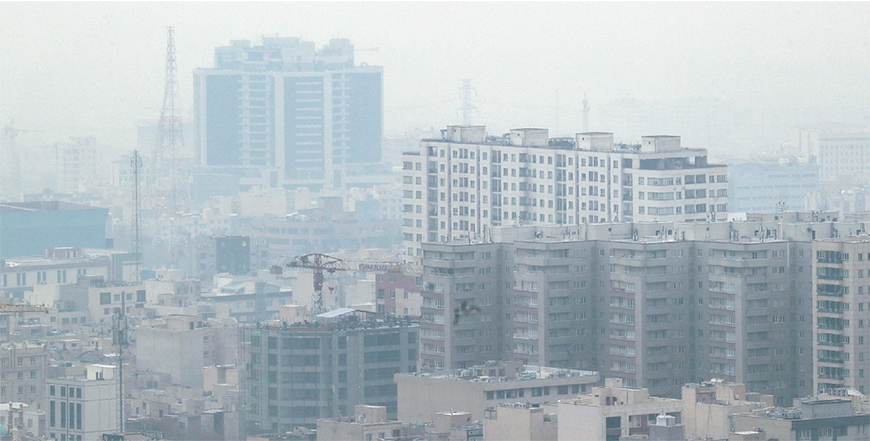TEHRAN — Schoolchildren and some government employees in Tehran have been ordered to stay at home this week due to severe air pollution in the Iranian capital, a recurring phenomenon in autumn and winter.
The “red warning” for hazardous air quality extends beyond the capital, affecting major cities nationwide, including Ahvaz in the southwest, Isfahan in the centre, and Tabriz in the northwest.
In Tehran, a sprawling metropolis of about 9 million people, kindergartens and schools have shuttered their doors since Sunday, transitioning to online classes.
The provincial governor’s office advises that people deemed “sensitive” — such as children, the elderly, and pregnant women — should refrain from outdoor activities and physical exercise.
Vulnerable public sector workers have been urged to work remotely.
Azam Keyvan, a 40-year-old civil servant, laments, “The situation is horrible. My throat itches as soon as I go out into the street.” She adds that the challenging conditions have deprived her of the ability to exercise for several days.
“We can’t breathe anymore,” decries Saeed Sattari, a 42-year-old street vendor in Tehran who sells cooked meals. He bemoans the economic toll of the pollution, saying, “I’m going bankrupt” since people avoid going outside.
Deadly consequences
The familiar pattern unfolds as colder weather set in: The clear blue sky at dawn slowly succumbs to thickening, yellowish smog that blankets the affected cities during the day, obscuring the view.
Many experts warn of the grave health and economic consequences of pollution. They say it claims the lives of about 40,000 people each year in the oil-rich country of around 85 million people, as reported by the media.
Tehran, renowned for its congested traffic and high population, makes up about one-sixth of the total casualties, according to a parliamentary report.
City council members Soudeh Nadjafi and Mehdi Pirhadi recently highlighted “burning mazout” in some of Tehran’s power plants as a major contributor to the city’s pollution, a claim rejected by the government.
“Electricity supplies have become more dependent on thermal and gas power plants, which naturally increases the sources of air pollution,” says environmental expert Sadegh Partani.
“Turning to new and sustainable sources of energies, such as solar, is one of the best ways to reduce air pollution caused by electricity producing industries,” the university professor adds.
Consistently earning a top spot among the world’s most polluted cities, Tehran is nestled on the southern slopes of the Alborz mountains. These imposing peaks act as a trap for the city’s contaminated air.
Since March, “Tehran has had nine days of clean air” only, the service responsible for monitoring air quality said on Monday.
Thermal inversion
The phenomenon known as thermal inversion peaks during winter, when cold air and a lack of wind trap hazardous smog over the capital for days on end.
“Car fuel pollution in climates and weather conditions prone to the inversion phenomenon can be one of the main sources of air pollution,” Partani says.
In 2017, the Iranian parliament adopted the “Clear Air Law” giving authorities including the government, municipality and police a mandate to step up measures to curb pollution.
Despite its enactment, the law has struggled to control the problem, forcing authorities to close kindergartens, schools and universities and in rare cases government offices in the colder seasons.
“Closing schools has nothing to do with reducing air pollution, but it is directly connected to reducing the health risks to vulnerable age groups,” says the expert Partani.
A World Bank report listed heavy vehicles, motorcycles, refineries and thermal power plants as the main causes of pollution.
Air pollution is high on the agenda of this year’s UN Climate Change Conference held in the UAE, which Iranian President Ebrahim Raisi skipped to protest the presence of Israel at the summit.
